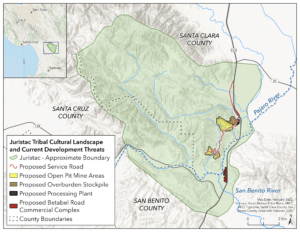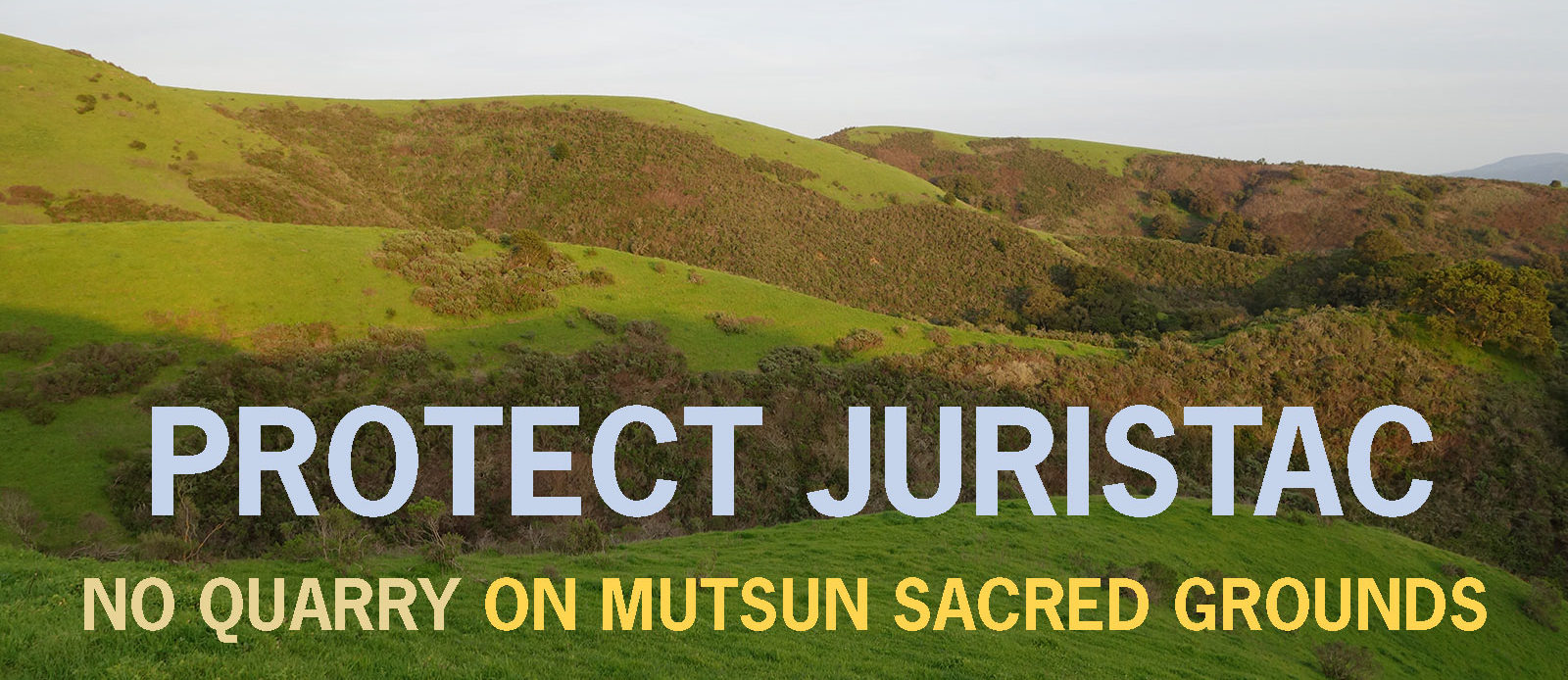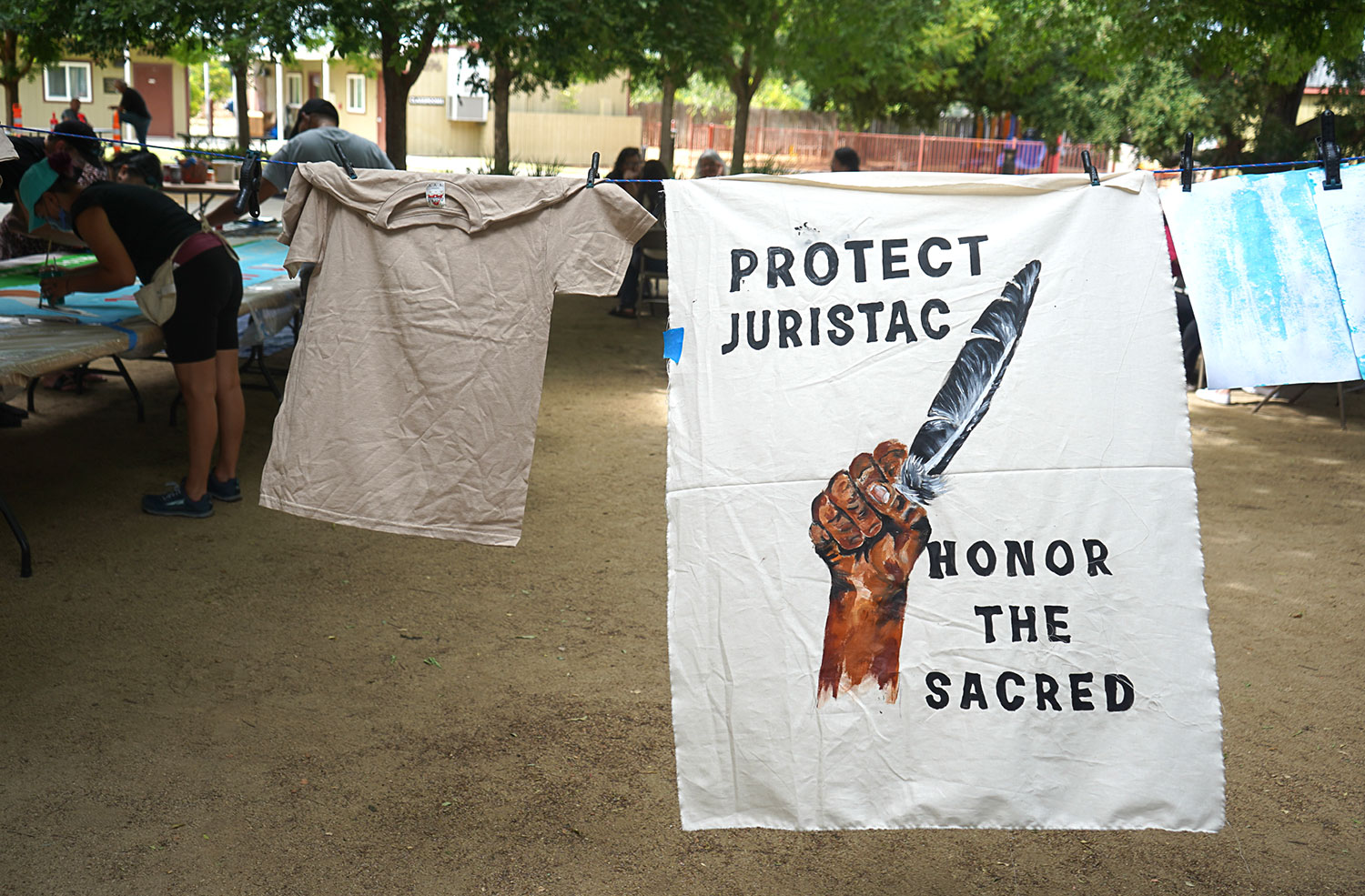On Tuesday evening, Sunnyvale—the second largest city in Santa Clara County—unanimously adopted a resolution urging the County to deny permits for proposed mining operations at Juristac. Sunnyvale is now the fourth city in the region to pass such a resolution, following Morgan Hill, Santa Clara and Santa Cruz.
“From an environmental standpoint the concept that this permit should be blocked, should not go forward, is really important,” Sunnyvale Mayor Larry Klein stated in his remarks at Tuesday’s council meeting. “[And I’m] definitely looking at it from an equity standpoint, of how we really pay homage to our indigenous members of our community that are still here, and, those that have gone before.”
Prior to the 7-0 vote by the Sunnyvale councilmembers, 11 members of the public offered compelling spoken comments in support of the resolution to protect Juristac. During the meeting, councilmembers moved to further strengthen the resolution, adding a clause calling for county action to secure funding for the open space acquisition of Juristac, and authorizing the Mayor to submit more detailed comments to Santa Clara County on behalf of the City once the EIR for the proposed mining project is released.
“I’m proud that our council was unanimous in their agreement that Sunnyvale stands with the Amah Mutsun Tribal Band in their efforts to preserve this irreplaceable resource.” said Vice Mayor Alysa Cisneros, who introduced the resolution. “As the second largest city in Santa Clara County, Sunnyvale must lead on issues of environmental and social justice. When our region’s Indigenous people were subjugated, stolen from, dehumanized and endured genocide, they stood alone. Never again, not this time.”
Crucial and unified support for the resolution came from Sunnyvale residents and organizations, with letters and spoken comments being delivered to City Council by many including the Sunnyvale Presbyterian Church, Livable Sunnyvale, Unitarian Universalist Fellowship of Sunnyvale, Sunnyvale Democratic Club, and the California Native Garden Foundation among others. Other local groups also backed the resolution such as Green Foothills, ACLU of Northern California, South Bay Indigenous Solidarity and SURJ at Sacred Heart.
The resolution by the Sunnyvale City Council comes at an important time, as Santa Clara County is currently planning to release its study of the environmental impacts of the proposed mine by the end of the month (June 2022.) This will open a 60-day public comment period during which time anyone is able to review and offer written remarks on the study to the County Planning Department.
City council resolutions send a strong message to Santa Clara County that local communities widely oppose the desecration of the sacred site. The California Democratic Party, Santa Clara County Human Rights Commission and the Monterey Bay Central Labor Council have also expressed opposition to the proposed mine, as have many elected officials and community organizations.
A sacred landscape

Juristac is a sacred Tribal Cultural Landscape comprising thousands of acres, located in the hills south of Gilroy. This landscape contains many sites of cultural and spiritual significance to the Amah Mutsun Tribal Band, and traditional ceremonies were conducted at Juristac for millennia.
A refuge for threatened species such as the California red-legged frog, California tiger salmander and American badger, Juristac is also considered to be of critical importance as a landscape linkage for wildlife migration in the region.
According to documents filed with the County of Santa Clara, the proposed open-pit sand and gravel mine would operate for 30 years, excavating four pits hundreds of feet deep in the hillsides of Juristac, and requiring hundreds of heavy truck trips per day on Highway 101 to transport the sand and gravel.

